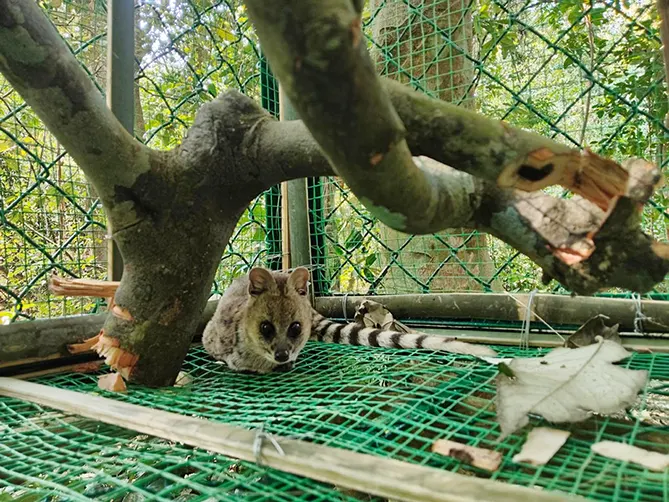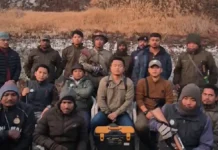[ Bengia Ajum ]
SEIJOSA, 27 Nov: The final acclimatization process for the release of a small India civet rescued from Papu Hill in Papum Pare district has started with the animal being translocated to the release
site inside the Pakke Tiger Reserve (PTR) here under Pakke Kessang district.
Estimated to be about two months old at the time of rescue, the civet has been undergoing rehabilitation at the Centre for Bear Rehabilitation and Conservation (CBRC) in Pakke-Kessang district, which is jointly operated by the Pakke Tiger Reserve (PTR) and the Wildlife Trust of India and is supported by the International Fund for Animal Welfare (IFAW).
The civet was initially housed at the Itanagar Biological Park before being transferred to CBRC in June. Upon arrival, the animal was found to be severely stressed and in poor health. Following intensive care and treatment, it has shown significant improvement, displaying a healthy appetite and normal eating habits.
The small Indian civet (Viverricula indica), is native to South and Southeast Asia and found in various habitats. This species is listed under India’s Wild Life (Protection) Act,1972, and faces threats from habitat loss, hunting for its musk, pelt, meat, and illegal pet trade. Its perineal gland secretes a waxy civet musk used in perfumes and medicines.
Dr. Panjit Basumatary, Manager and Head CBRC, WTI said, “This phase of acclimatization is crucial for the civet’s successful reintegration into its natural habitat.”
PTR DFO Satyaprakash Singh stated that shifting of civet towards the release site in core areas of PTR is crucial for release and reintegration into the wildlife ecosystem.





